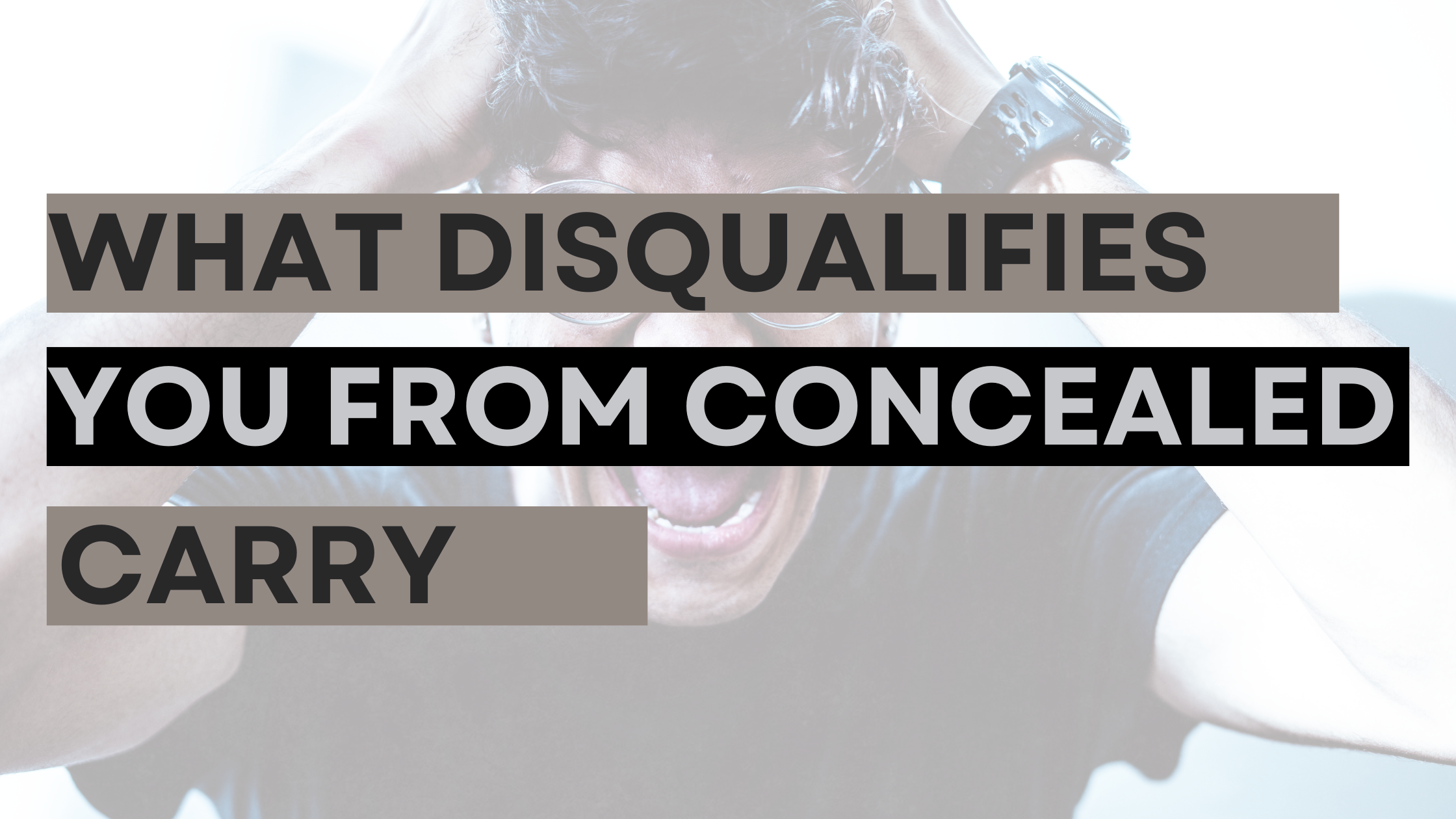Introduction To What Disqualifies You from Concealed Carry
Carrying a concealed weapon is a significant responsibility, and not everyone qualifies to do so. There are strict federal and state laws in place to ensure that only eligible and responsible individuals can carry concealed firearms. Understanding what disqualifies someone from concealed carry is crucial for anyone considering this option. In this blog, we’ll break down the key factors that could prevent someone from legally carrying concealed.
Which concealed carry permit is the best?
Federal Disqualifications
Federal laws establish baseline disqualifications for firearm ownership and concealed carry. These include:
-
Felony Convictions:
-
Convicted felons are prohibited from owning or carrying firearms unless their rights have been restored.
-
-
Domestic Violence Convictions:
-
Individuals convicted of domestic violence misdemeanors cannot carry firearms under the Lautenberg Amendment.
-
-
Restraining Orders:
-
Active restraining or protective orders related to domestic violence or harassment often disqualify individuals.
-
-
Illegal Drug Use or Addiction:
-
Regular users of illegal drugs, including marijuana (even in states where it’s legal), are prohibited from carrying firearms.
-
-
Mental Health Issues:
-
People adjudicated as mentally incompetent or involuntarily committed to a mental institution are disqualified.
-
-
Dishonorable Military Discharge:
-
A dishonorable discharge from the armed forces results in a federal firearm prohibition.
-
State-Specific Disqualifications
Beyond federal laws, states impose additional restrictions. These can vary significantly, so it’s essential to understand your state’s specific regulations. Common state-level disqualifications include:
-
Recent Criminal Charges:
-
Charges for violent crimes, even without a conviction, may temporarily disqualify an individual.
-
-
DUI/DWI Convictions:
-
Some states disqualify individuals with recent or multiple DUI/DWI offenses.
-
-
Juvenile Offenses:
-
Certain juvenile records may affect eligibility, depending on the state.
-
-
Incomplete Training Requirements:
-
Failure to complete mandatory firearm safety or concealed carry training disqualifies applicants in many states.
-
Temporary Disqualifications
Some disqualifications are not permanent and can be resolved. Examples include:
-
Pending Criminal Cases:
-
An individual may be ineligible while awaiting trial or resolution of criminal charges.
-
-
Restraining Orders:
-
Once an order is lifted, eligibility may be restored.
-
-
Probation or Parole:
-
Completing probation or parole terms can restore eligibility.
-
How to Check Your Eligibility
To ensure you’re eligible for concealed carry:
-
Consult Local Authorities:
-
Contact your state’s licensing agency or law enforcement for specific eligibility requirements.
-
-
Run a Background Check:
-
Some states allow individuals to request personal background checks to confirm eligibility.
-
-
Seek Legal Advice:
-
If you’re unsure about your eligibility due to past issues, consult an attorney experienced in firearm laws.
-
Understand who can carry a concealed weapon here.
What to Do If You’re Disqualified
If you’re currently disqualified from concealed carry, there may be options to restore your eligibility:
-
Expungement or Record Sealing:
-
Some criminal records can be expunged, removing the disqualification.
-
-
Restoration of Rights:
-
In some states, felons can apply to have their firearm rights restored after a certain period.
-
-
Appeals Process:
-
Some states offer an appeals process for disqualified applicants to challenge the decision.
-
Conclusion
Carrying a concealed weapon is a privilege with strict legal requirements. Understanding what disqualifies you ensures that you stay on the right side of the law and approach concealed carry responsibly. If you’re considering applying for a permit, make sure to review your state’s regulations thoroughly.

